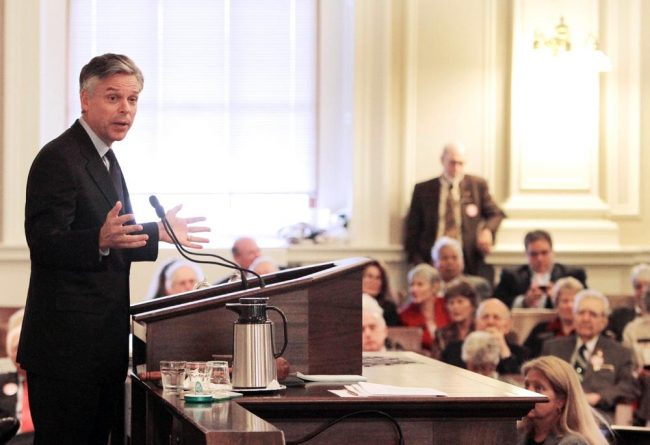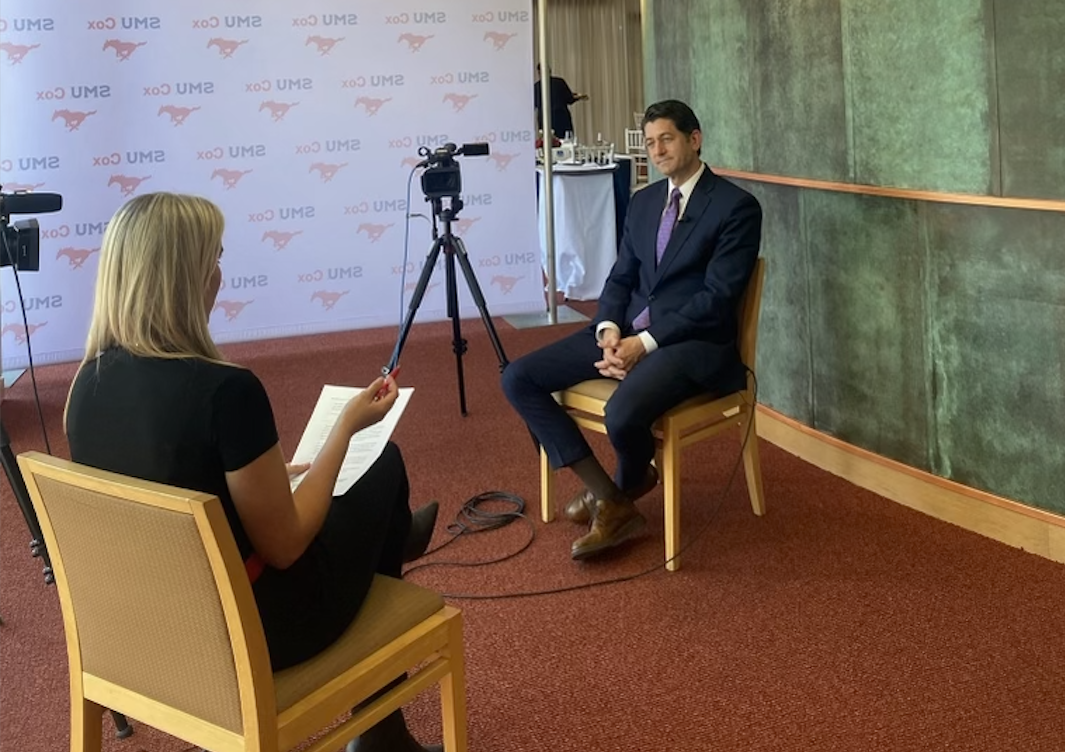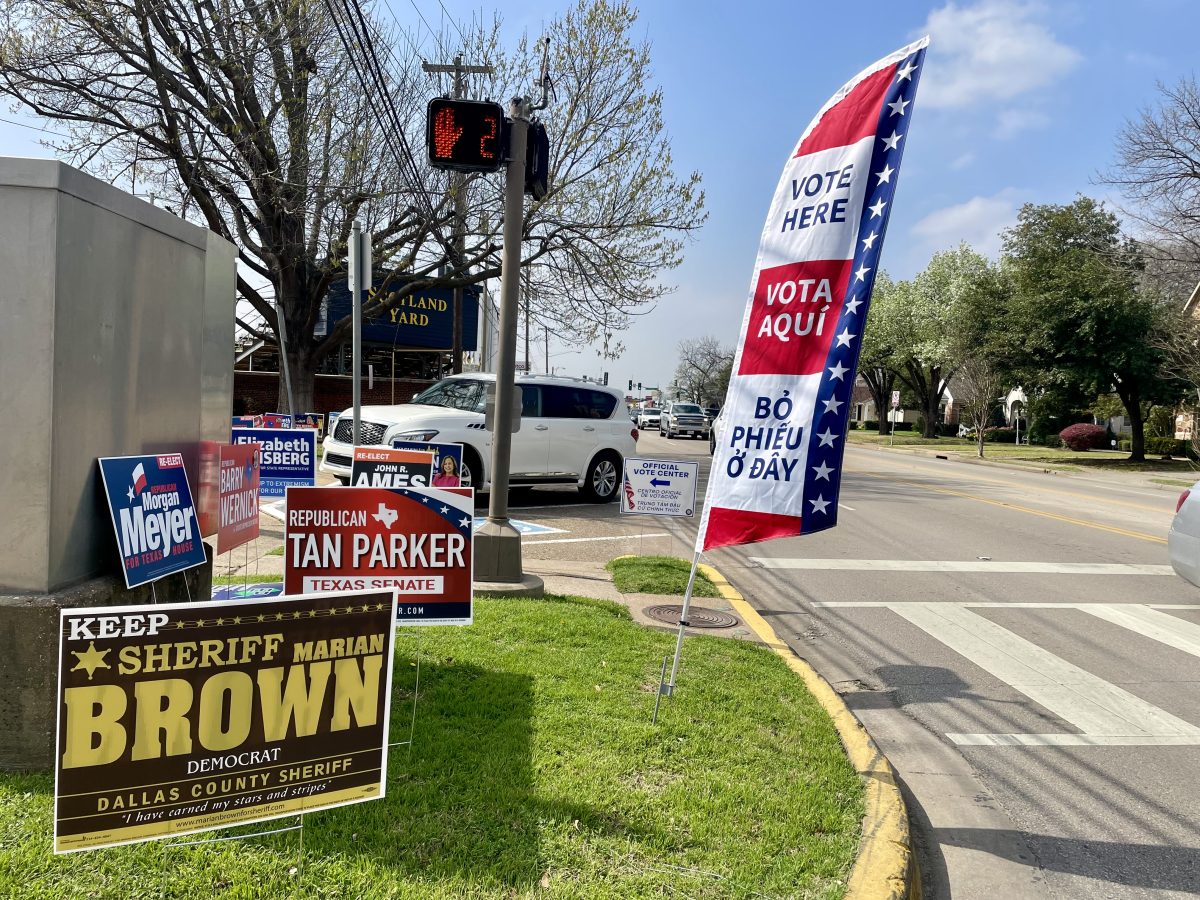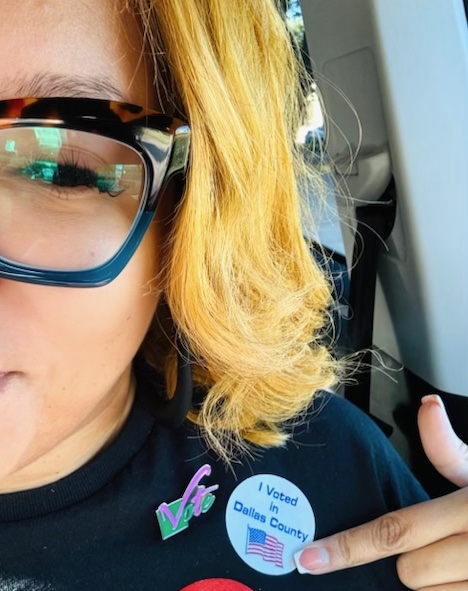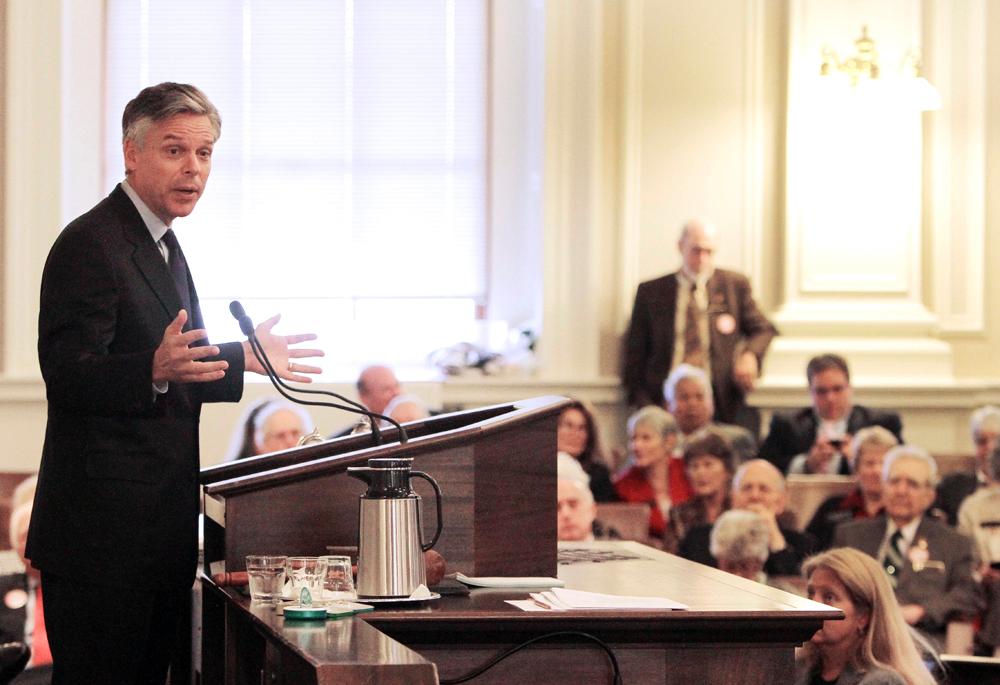
Associated Press Jon Huntsman, speaking here to the New Hampshire legislature during a campaign stop at the Statehouse in Concord, N.H., Wednesday, Nov. 30, is having a difficult time attracting hard-line conservatives to his base. (Associated Press)
The 2012 GOP Primary election has been a whirlwind of extreme ideologies and gaffe-prone sound bites.
In the midst of straw polls and debates, challengers such as Minnesota Rep. Michele Bachmann and Texas Gov. Rick Perry have experienced fluctuating support among the Republican base.
Fickle politics appears to be the trend, with a new favor of the week swiftly surging to the top, only to be quickly outshone by the next new thing.
While right-wing candidates like Bachmann, Perry and Herman Cain have at one time or another topped the polls, moderate candidates like former Utah Gov. Jon Huntsman and former Massachusetts Gov. Mitt Romney, appear to be lacking passionate support from the Republican base.
Nate Silver, a statistician and journalist for the New York Times, modeled the likelihood of each candidate winning the popular vote based on 2012 GDP growth, President Barack Obama’s current approval rating and the ideology of the candidate. Huntsman distinctly ranked as the candidate most likely to defeat Obama in the general election, followed by Romney.
Although Romney is considered a front-runner, he has consistently placed second in polls, while Huntsman has failed to make any significant impact among GOP primary voters.
Some blame the media for the apparent divide in the Republican Party. Washington Times columnist Jeffrey Kuhner accused the media of provoking conflict among the GOP candidates because they favor Obama.
However, SMU Political Science Professor Cal Jillson cites the ideologically unyielding primary voter for the lack of moderate support.
“Generally, the Republican primary voter is among the most committed to the party and it’s ideology, and that’s a conservative ideology,” he said. “Among [primary electorate] Republicans the most successful candidates tend to be those who are consistently and vehemently conservative, so that makes it easer for the conservative candidate to paint the moderate candidate as insufficiently determined.”
Romney is often criticized for implementing a healthcare bill similar to Obama’s in his home state, a claim he has tried to back away from since his entry into the race.
According to Jillson, anyone who tries to be moderate is vulnerable to accusations of not being conservative enough for the nomination.
This causes moderates, like Romney, to adopt a more conservative platform solely to obtain the nomination.
Republican candidates who run in blue states are forced to make arguments that will resonate with voters; however, their stances may hurt them in a primary electorate. Democrats who run in conservative red states also face a similar dilemma.
“To run in a Republican primary Romney has had to backtrack on a number of positions to get right with the conservative position, but then he’s subject to this flip-flopping charge,” Jillson said.
The primary election process advantages more staunch conservatives and liberals, and this in turn breeds a political establishment in Washington that is deeply divided on ideology. According to Jillson, the Washington divide gives the false illusion of a split public, when in reality the general population is not nearly as ideologically separated as its elected officials.
Although Jillson cites the heated primary election as the prime reason for moderate hardships, he also acknowledges the dynamics in media coverage that lead them to look for scandal and horse-race comparisons, as opposed to more in-depth discussions of policy differences that readers may considered complicated and boring.
“Journalists can be ambulance chasers; they look for the conflict and they look for and dwell endlessly on ‘Rick Perry froze up,'” he said. “[There was] an hour and a half of debate among eight people, most of which is never mentioned again in any media source.”
The Dallas Morning News Senior Political Writer Wayne Slater acknowledges the reference for writing the easier story, but argues that Perry’s inability to remember, in a recent debate, three policies that were supposedly key to his platform may tell viewers he may not be ready for the job.
“More often than not these moments, these sound bites, tell us something about the candidates that they will never tell us themselves,” he said. “They tell us what these candidates would be if they became the President of the United States, and I think that’s important.”
Slater also notes that coverage has less to do with what the media wants than what is already there.
“News is conflict, conflict of ideas; if they disagree on this point or that point that’s what makes news. But we don’t create conflict, we look for the differences in the candidates,” he said.
Like Jillson, Slater believes the Republican primary voter is much more ideologically stringent than most Republican general election voters, who tend to be much more moderate and willing to compromise.
“The Republican Party itself is divided between the establishment with more traditional interests and the emerging evangelical and Tea Party voters. The media didn’t create this, this is an intramural battle within the Republican Party for the direction of the Republican Party,” he said.
Chad Cohen, president of SMU College Republicans, agrees with Slater’s analysis.
“As a moderate Republican myself, I certainly do not think the Tea Party and far-right wing elements of the Party define what it means to be Republican. In many ways, this race reflects the tension between these groups,” he said.
Jillson believes candidates like Cain and Bachmann will slowly disappear as voters being to vote in the early primary elections and seriously consider the best possible opponent for Obama.
“At this point the primary electorate is intrigued by the arguments and the ideological conflict, but once they start voting in Iowa, New Hampshire, South Carolina, and particularly as it gets down to two or three they’ll be more serious and calculating, and looking longer term when the actual voting starts,” he said.
Cohen is hoping Huntsman will see an upsurge in the coming weeks.
“I look for someone who can negotiate and reach a consensus with Congress, rather than engage in ideological warfare. I feel like he has the skill set and experience to be that person,” he said. “Realistically though, his candidacy will likely be finished by the time the Texas primary occurs. Assuming Huntsman is out of the race, I would reluctantly vote for Romney before voting for Cain, Perry or Bachmann.”







